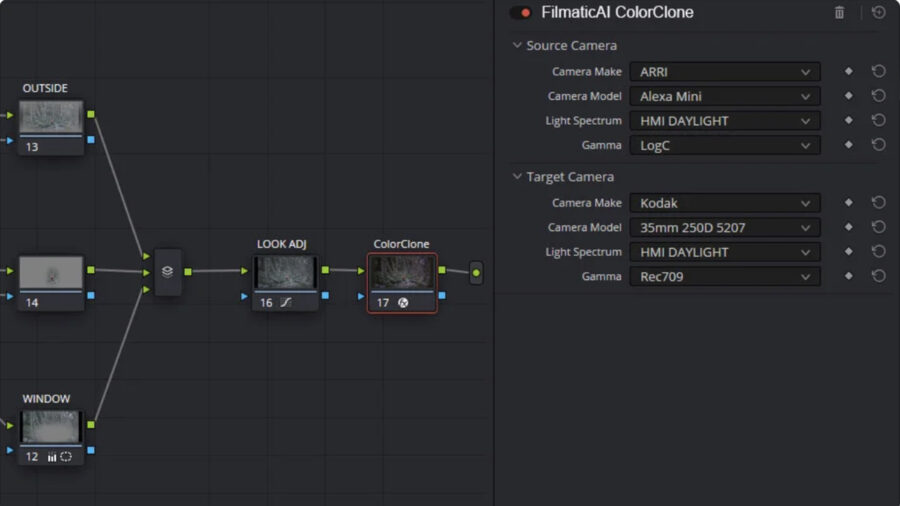

The L.A.-based company Filmatic AI, which was founded by DPs Brian Ngyuen and Ryan Emanuel, has announced a February release date for its AI-powered camera matching tool, ColorClone. Let’s have a look at what the company promises.
If you have ever tried to match the colors of cameras by different manufacturers by hand, you know what a painful process that can be – each manufacturer having their own color science and the differences in sensors all contributing to make this task difficult. There are of course already plugins available to help you with this such as CineMatch by FilmConvert, which has camera profiles for many different manufacturers.

AI-powered matching
As we reported in October, Filmatic AI claims that their tool uses an advanced algorithm that takes into account many different factors such as light spectrums, exposure, camera angles, and sensor dynamics.
Let’s have a look at the quite impressive sample video they have released on YouTube:
Supported cameras at launch
These are the cameras that will be supported at launch. More models from the Blackmagic Pocket series, the Panasonic LUMIX GH series, and the Canon EOS C series will be added over time:
ARRI
ARRI WideGamut3/Log C and ARRI WideGamut4/LogC4.
BLACKMAGIC
BMDGen5/BMDFilm.
SONY
- Venice 1
- Venice 2
- FX3
- FX6
- FX9
S-Gamut3.Cine/S-Log3
Kodak Vision3
- 500T 5219 Film Negative
- 250D 5207 Film Negative
RED
REDWideGamutRGB/Log3G10
In this video example, you can see a match of the Sony FX3 to an ARRI Alexa 35:
Adding your own profiles
Furthermore, the company plans on including an extension that will allow the user to submit their own camera data to create a match or to re-create their own custom looks.
Pricing and availability
There is no word on the pricing from the company yet, but the release date has been announced as February 2024 for the DaVinci Resolve version with a version for Premiere Pro on the way soon.
We will test the plugin as soon as it is made available and will let you know the results.
We think this plug-in is looking quite promising. What do you think? Will you use it for matching? Are there any other tools you would recommend for this purpose? Let us know in the comments below!






